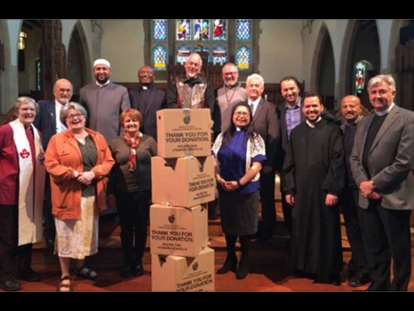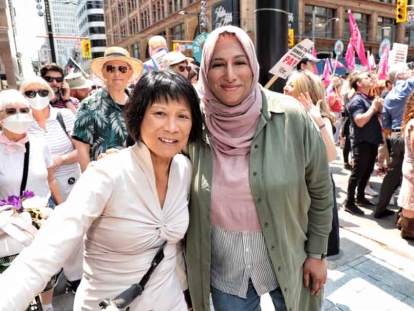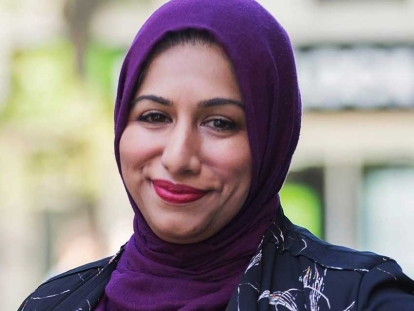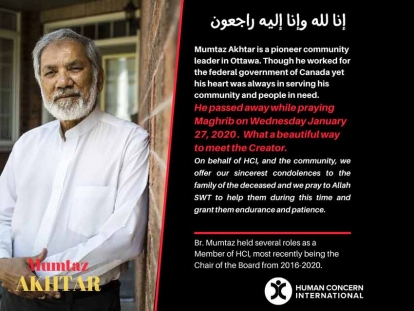Mar
Mar
Funeral services regulatory body's new Muslim chair Syed Mumtaz Akhtar
Written by Staff WriterSyed Mumtaz Akhtar has been involved with community and cultural groups for the past four decades. He was the founding member and/or president of several Muslim organizations including: the Ottawa Muslim Association, Sadaqa Food Bank, Human Concern International, Canada Pakistan Association, Federation of Pakistani Canadians, Muslim Community Council of Ottawa-Gatineau and the Jamiatul Muslimeen of Ottawa Carleton. Mr. Akhtar has had roles in the Canadian Muslims National Steering Committee for Bill C-36 and C16 and the Community Policing Action Committee.
On Jan. 12, 2012, he was elected Chair of the Board of Funeral Services of Ontario, the body that licenses and regulates all funeral service establishments and operators in the province. Mr. Akhtar spoke to the Muslim Link about his long-standing participation on the board as the only Muslim member and his new role the first Muslim chair.
When did your involvement begin with funeral services?
In 1994 when we purchased the Baptist Bible Church on 572 Moodie Drive to establish a mosque, now called Jami Omar, we were also contemplating a mortuary in the garage attached to the house. After renovation of the prayer hall in the basement we started to collect funds to build a mortuary which was needed in Ottawa for the Muslim community. The cost of funeral and services was more than we expected and a lot to ask of our generous community.
However, we started to work on establishing a washing facility for the Ottawa Muslims. This cost us close to $35,000. Costs went toward renovations, such as converting the garage. After two years, we started the Islamic washing facility.
The community was eagerly awaiting such a facility where they would now have the opportunity to carry out funeral procedures according to Islamic rituals in dignity and privacy.
How did your participation on the Board of Funeral Services of Ontario come about?
In August 1998 we provided the first service to a Turkish-Canadian sister who had passed away. We built a manual stretcher of flat piece of wood for the body to be carried in. We were able to find a very helpful Muslim contractor to construct a few low-cost caskets and we provided a passenger van to transport the body from the hospital to Jami Omar and then from there to the Highland Cemetery. We had reserved 500 graves and had made a special section for Muslim burials. All services were provided free except for the cost of the grave.
Permission to operate was sought from the Board of Funeral Services of Ontario, a regulatory body of the Ontario government. BOFS was very cooperative with Jami Omar, but we were later visited by their inspectors, who provided us with a list of dos and don'ts. We were a little intimidated at first but then we started to come up with a few solutions.
I had the opportunity to meet with the Premier and Yasir Naqvi, MPP, from the Ottawa centre. I mentioned our concerns to both of them. They offered me a position on the Board of Funeral Services of Ontario and a couple of weeks later I was appointed as a public member. I joined the board in May 2007 for a three-year term which was extended to another term of the same duration.
How does the BOFS function?
The BOFS is a self governing body which regulates the practices of funeral directors, transfer services operators, funeral service establishments and transfer services in accordance with provincial legislation. It has five standing committees. It has thirteen members, eight funeral directors and five public members. All members are appointed by the Lieutenant Governor- in-Council.
After joining the BOFS I was appointed on the Discipline, Compensation and Legislation committees and in the third year of my term I was appointed vice chair on the executive committee. I was initially appointed to the board because I am Muslim, and I am the first Muslim there in the 98 years of BOFS history.
What did you hope to accomplish by being on the BOFS?
I wanted to make sure that BOFS understood the religious needs of Muslims. The board was able to understand requirements of the Islamic religion.
Tell us about your latest appointment.
I was elected chair on Jan. 12, by the board members for a term of one year. The principal objective of the chair is to: oversee the regulation of the practices of licensees in accordance with the Funeral, Burial and Cremation Services Act, 2002; oversee the regulations made under the act and by-laws in order that the public interest may be served and protected; and to regulate the practices of the funeral directors and persons who operate funeral establishments and transfer services in accordance with this act.
What does this mean for the Muslim community?
It is an honor for Muslims to be on any of the Boards of Ontario. I encourage community members to go to Appointment Secretariat web site and apply as a public member for these agencies. There are several hundred self governing agencies in Ontario and each agency has 13-16 board members. We, as a community, have a lot of educated well experienced professionals who can bring their expertise with Islamic perspectives and contribute to the betterment of the province. I encourage people who have time and energy to apply for these positions. These are paid positions.
To apply as a public member for these agencies visit:
www.pas.gov.on.ca/scripts/en/home.asp
This article was produced exclusively for Muslim Link and should not be copied without prior permission from the site. For permission, please write to info@muslimlink.ca.















